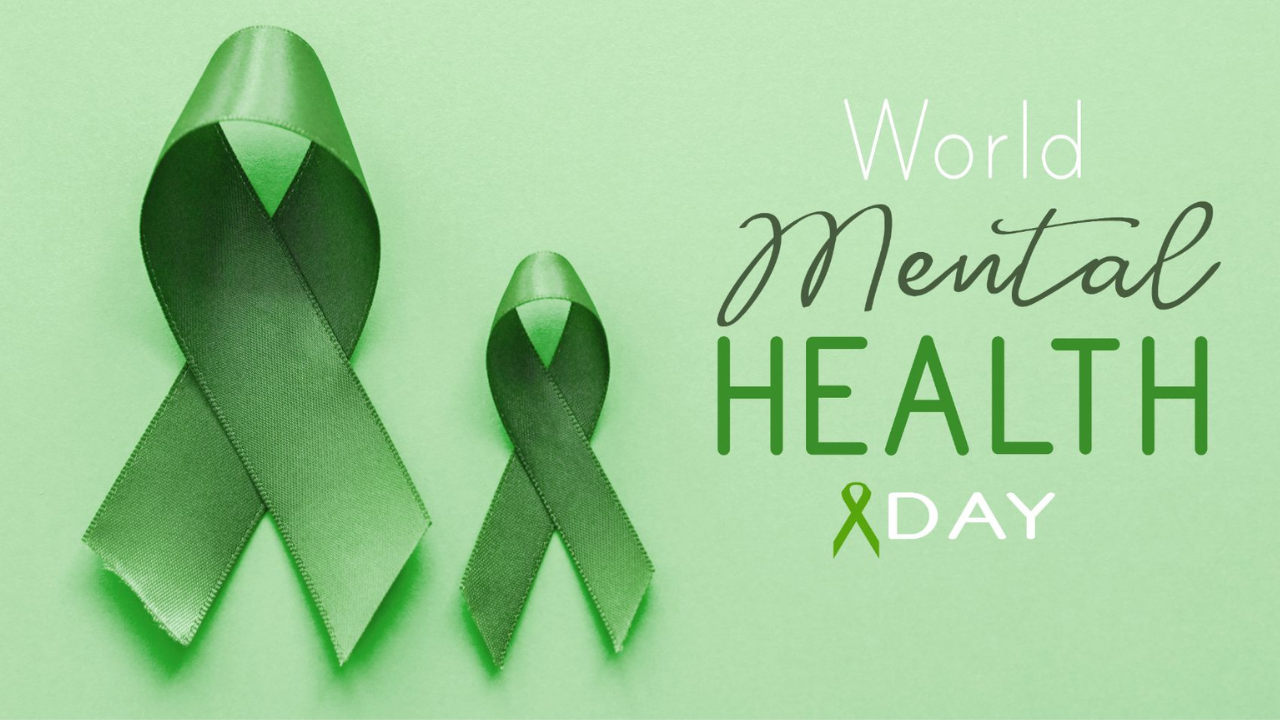World Mental Health Day Edition: It’s okay not to be okay!

Mental health is a foundational component of well-being, so I want to devote this blog to mental health and breaking down the stigmas around it.
World Mental Health Day: A Brief History
Every year on October 10th, the world comes together to observe World Mental Health Day. This day has its roots in an initiative started by the World Federation for Mental Health (WFMH), and it was first observed in 1992. The purpose is to raise awareness about mental health issues, promote open discussions, and break down the stigma that surrounds mental health.
One in five adults experiences a diagnosable mental illness in any given year. Of those, more than half won’t get the treatment they need.
Especially in the legal profession, we hate admitting vulnerability. We struggle to say we are struggling. We try to appear super-human at all times, even when we are crumbling inside.
But if you don’t have it together 100% of the time, you aren’t alone.
And you shouldn’t feel alone.
Breaking the Stigma: A Global Effort
Over the years, many influential figures from various walks of life have shared their struggles with mental health. As leaders and well-known individuals share their stories, they help to challenge the stigma associated with these issues. Business leaders like Elon Musk, who openly discussed his battle with depression, and athletes like Michael Phelps, who shared his journey with anxiety and depression, have shown that mental health challenges can affect anyone, regardless of their success or status.
How can we help break the stigma with our colleagues, loved ones, and organizations?
-
Education and Awareness: Understanding that mental health is just as important as physical health is the first step. We can start by educating ourselves and others about different mental health conditions, their causes, symptoms, and treatment options. Knowledge is power, and it can help reduce the fear and misunderstanding surrounding these issues.
-
Open Conversations: Encourage open conversations about mental health within your family, workplace, and community. By sharing your own experiences or simply being a good listener, you can create a safe and supportive environment for those who might be struggling.

-
Support and Empathy: Offer your support to those in need. Let them know they are not alone and that seeking help is a sign of strength, not weakness. Simple acts of kindness and empathy can make a significant difference in someone's life. Ask how people are doing, and really listen deeply for their response.
-
Challenge Stereotypes: Challenge and confront stereotypes and discriminatory behaviors related to mental health. Use your influence to promote inclusivity and acceptance, both online and offline. If you observe someone belittling someone’s mental health challenge or not supporting them through it, say something.
-
Seek Professional Help: If you or someone you know is struggling with mental health issues, encourage seeking professional help. Mental health professionals are trained to provide the necessary support and treatment. There is no shame in asking for help when it's needed - asking for the help you need is the most courageous thing you can do.
Breaking the Stigma: A Collective Responsibility
Breaking the stigma around mental health is a collective responsibility. It requires us to change our mindset, promote understanding, and foster a more compassionate society. World Mental Health Day serves as a reminder that we all have a role to play in this important mission.
By coming together, we can make a difference in the lives of those who are suffering and create a legal profession where mental health is a topic that can be discussed openly, without fear or judgment.
Let's start today and work together to break the stigma and support one another on the journey to mental well-being. The legal profession needs us to stand up for one another and make conversations about and support of mental health commonplace.
Let me know how I can help. I’m happy to brainstorm with you as to how to support your colleagues and organization with normalizing conversations about mental health and creating what I call a “Culture of Caring.”
And if you are struggling, please know that you aren’t alone. Reach out for the help you need, especially if you are in an organization that has resources available.
It’s okay not to be okay.

